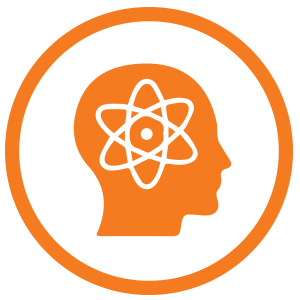Clinical and Counseling Psychologists
What They Do: Assess, diagnose, and treat mental and emotional disorders of individuals through observation, interview, and psychological tests. Help individuals with distress or maladjustment understand their problems through their knowledge of case history, interviews with patients, and theory. Provide individual or group counseling services to assist individuals in achieving more effective personal, social, educational, and vocational development and adjustment. May design behavior modification programs and consult with medical personnel regarding the best treatment for patients.
Also Called: Case ManagerClinical PsychologistCounseling PsychologistCounselorLicensed Clinical PsychologistLicensed PsychologistLPC (Licensed Professional Counselor)PsychologistPsychotherapistTherapist
Resource Details
 Knowledge
Knowledge
| Name | description |
|---|---|
| Psychology | Knowledge of human behavior and performance; individual differences in ability, personality, and interests; learning and motivation; psychological research methods; and the assessment and treatment of behavioral and affective disorders. |
| Therapy and Counseling | Knowledge of principles, methods, and procedures for diagnosis, treatment, and rehabilitation of physical and mental dysfunctions, and for career counseling and guidance. |
| English Language | Knowledge of the structure and content of the English language including the meaning and spelling of words, and rules of composition and grammar. |
| Education and Training | Knowledge of principles and methods for curriculum and training design, teaching and instruction for individuals and groups, and the measurement of training effects. |
| Customer and Personal Service | Knowledge of principles and processes for providing customer and personal services. This includes customer needs assessment, meeting quality standards for services, and evaluation of customer satisfaction. |
| Sociology and Anthropology | Knowledge of group behavior and dynamics, societal trends and influences, human migrations, ethnicity, cultures, and their history and origins. |
| Law and Government | Knowledge of laws, legal codes, court procedures, precedents, government regulations, executive orders, agency rules, and the democratic political process. |
| Administration and Management | Knowledge of business and management principles involved in strategic planning, resource allocation, human resources modeling, leadership technique, production methods, and coordination of people and resources. |
| Administrative | Knowledge of administrative and office procedures and systems such as word processing, managing files and records, stenography and transcription, designing forms, and workplace terminology. |
| Medicine and Dentistry | Knowledge of the information and techniques needed to diagnose and treat human injuries, diseases, and deformities. This includes symptoms, treatment alternatives, drug properties and interactions, and preventive health-care measures. |

